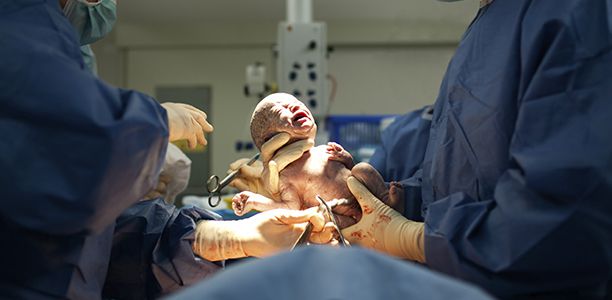Women’s magazines are key influencers for women’s birth decisions and most of their stories promote the benefits of medicalised birth, says QUT’s Associate Professor Yvette Miller.
One of the few studies to experimentally test how biased magazine articles on birth affect women’s attitudes and intentions for using medical intervention in birth was conducted by Professor Miller from QUT’s Institute of Health and Biomedical Innovation and Kate Young from Monash University’s School of Public Health and Preventive Medicine and published in Women and Health.
The researchers surveyed 180 women who had never given birth but intended to have children, aged between 18 and 35, who read a magazine article endorsing non-medicalised birth.
They also investigated the effects of reading an article that used celebrities’ vs “real-life” people to endorse non-medicalised birth.
“We know celebrities have been shown to influence people’s health decisions but the effect of celebrity and non-celebrity role models on women’s intentions for birth-related decisions have not been studied,” Professor Miller said.
“Women use many information sources when they are choosing options for their pregnancy and birth.
“Previous research shows much of the available information from sources ranging from health-care providers, to reality TV shows and women’s magazines is biased towards medicalised birth.
“It assumes that medical interventions such as epidural and caesarean, medicalised settings, and medical emergencies are typical even for low-risk pregnancies.
“We were interested in how similarly selective and biased information about birth could influence women’s perception about the risks of non-medicalized birth and their own preferences for future birth experiences.”
The study’s participants were surveyed before and after they were randomly exposed to one of three types of articles similar to those found in magazines such as Marie Claire and Cosmopolitan.
Articles contained either celebrity endorsement of non-medicalised birth, non-celebrity endorsement of non-medicalised birth or a control article that focused on endorsement of eating organic food.
“We found no difference in any of the three groups in intention for medicalised birth before exposure to the articles,” Professor Miller said.
“However, women who were exposed to a magazine article endorsing childbirth without medical intervention (with and without celebrity endorsement), were more likely to change their intention towards having a more natural birth than those who had been exposed to the organic eating article.”
Professor Miller said the study results suggested that we needed to be more aware of how communication strategies can influence women’s decisions about the range of birth options.
“Women need non-directive, non-selective, unbiased information about their available options so they can make a decision that is best for them.
“This study in particular indicates that offsetting the current bias towards medicalised birth would probably contribute to reducing the rates and dangers of medically unnecessary intervention for pregnant and birthing women.”
(Source: Queensland University of Technology, Women and Health)










